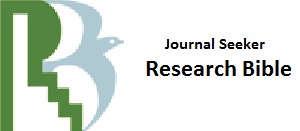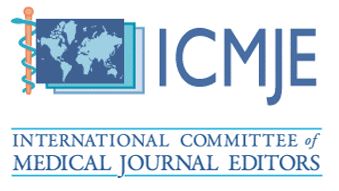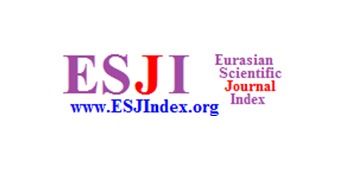Public Assistance?

Our Editors

Dr Hazim Abdul-Rahman
Associate Editor
Sarcouncil Journal of Applied Sciences

Entessar Al Jbawi
Associate Editor
Sarcouncil Journal of Multidisciplinary

Rishabh Rajesh Shanbhag
Associate Editor
Sarcouncil Journal of Engineering and Computer Sciences

Dr Md. Rezowan ur Rahman
Associate Editor
Sarcouncil Journal of Biomedical Sciences

Dr Ifeoma Christy
Associate Editor
Sarcouncil Journal of Entrepreneurship And Business Management
Indexes






Know Who We Are
Scientific Academic Research Council and Publisher (SARC Publisher) is a globally recognized, peer-reviewed publishing platform dedicated to disseminating groundbreaking research. We specialize in publishing research articles, review papers, and case reports, with a strong emphasis on the latest scientific advancements. At SARC Publisher, we strive to illuminate significant research contributions from scholars worldwide, fostering an environment of knowledge exchange and innovation. Our mission is to provide researchers with a prestigious platform that amplifies their work and ensures the recognition they rightfully deserve within the global scientific community.
Announcement
Call for Papers
SARC Publisher invites researchers and scholars to submit Research Articles (RA), Review Papers (Rev), and Short Communications for publication in our esteemed journals spanning all academic disciplines. We welcome submissions for our forthcoming issues. Authors can submit their manuscripts via email at submit.sarcouncil@gmail.com.
Latest Articles
Comparison Study between Laparoscopic and Open Colorectal Surgery
Soprano Vocal Technique in the Performance of Caro Mio Ben within the Romantic Musical Style
Operational Efficiency under Political and Legal Constraints: Criminological Perspectives on Counter-Terrorism Law Enforcement
Effect of Regular Exercise and Diet Modification on Glycemic Control in Type 2 Diabetics
Exploring the Link between Sleep Apnea and Cardiovascular Diseases: An ENT Perspective
Public Infrastructure Investment and Regional Economic Development: A Review of U.S. Strategies for Stimulating Growth in Economically Distressed Areas
Barriers and Facilitators to Implementing Harm Reduction Programs in Rural and Underserved U.S. Communities: A Scoping Review
A Cross-Sectional Evaluation of CT and MRI Diagnostic Accuracy in Detecting Hepatocellular Carcinoma with Emphasis on Small Tumors
Digital Transformation of Payment Systems and Its Effect on Financial Reporting Quality
Advanced Observability and AIOps Framework for Intelligent IT Operations Management
Our Journals
Certificate



Testimonials
"SARC's commitment to open access publishing has significantly broadened the reach and impact of our research findings."
 Dr. Alice Johnson, Professor of Biology
Dr. Alice Johnson, Professor of Biology
"The editorial support provided by SARC was exceptional. Their guidance and feedback were instrumental in refining our manuscript for publication."
 Dr. David Lee, Research Scientist
Dr. David Lee, Research Scientist
"SARC's efficient online submission system and user-friendly platform made the publishing process remarkably smooth and straightforward."
 Dr. Maria Garcia, Postdoctoral Fellow
Dr. Maria Garcia, Postdoctoral Fellow
"We were impressed by the rapid publication turnaround time and the high production quality of our published article."
 Prof. Michael Chen, Department of Chemistry
Prof. Michael Chen, Department of Chemistry
"SARC's dedication to ethical publishing practices and their commitment to disseminating high-quality research are commendable."
 Dr. Sarah Wilson, Research Associate
Dr. Sarah Wilson, Research Associate

